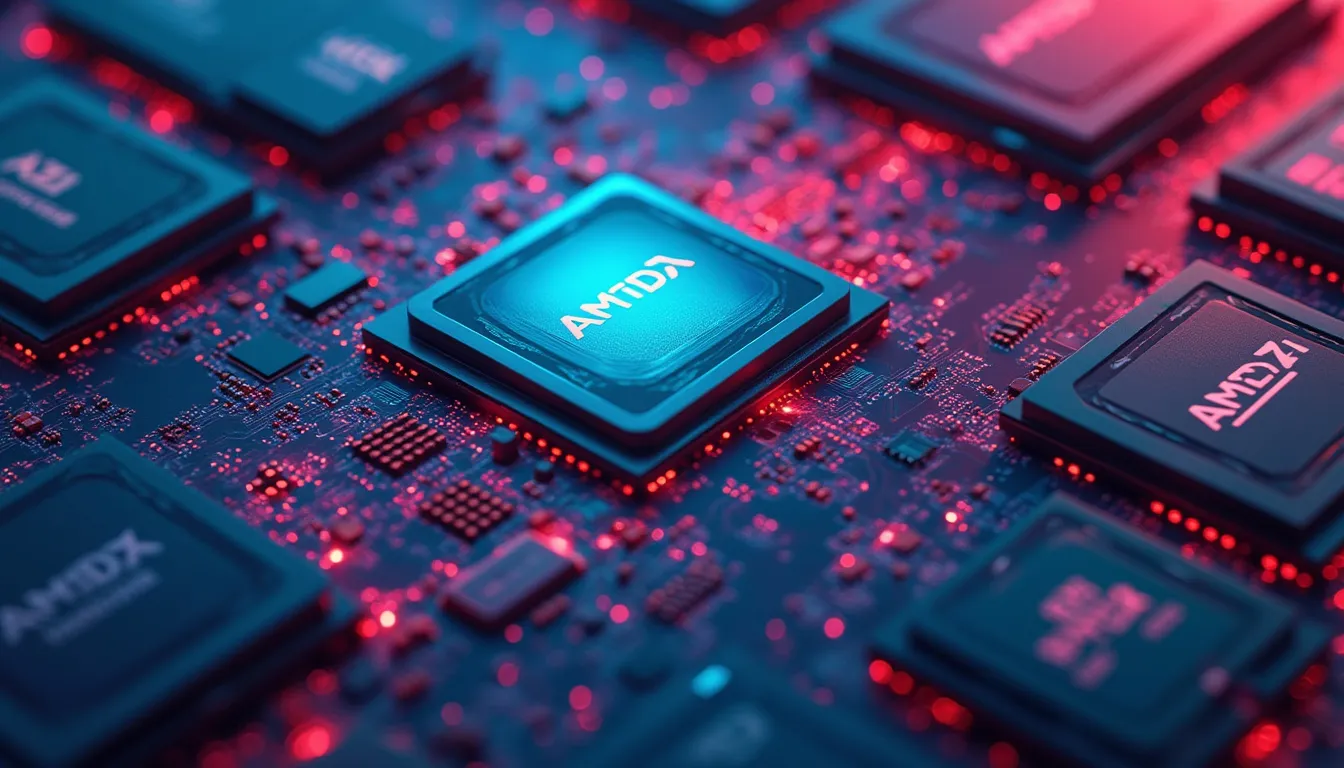AMD has taken a significant stride in the realm of AI computing solutions with the announcement of their latest advancements. As of October 10, 2024, the technology giant has unveiled an array of innovative components and strategic partnerships poised to redefine performance benchmarks in the industry. This leap forward is underscored by the launch of the 5th Gen AMD EPYC processors and other complementary AI-centric technologies.
Breakthrough in Processor Technology
The newly introduced 5th Gen AMD EPYC processors, codenamed ‘Turin,’ mark a pivotal advancement in processor technology. Built upon the ‘Zen 5’ core architecture, these processors offer an impressive increase in core counts, ranging from 8 to 192. This groundbreaking architecture is tailored to provide record-breaking performance and unparalleled energy efficiency, enabling businesses to leverage enhanced computational capabilities.
Performance improvements are astounding, with the 5th Gen AMD EPYC processors delivering up to 17% better instructions per clock (IPC) tailored for enterprise and cloud workloads. Notably, these processors can achieve up to 37% higher IPC for AI and high-performance computing (HPC) tasks compared to their predecessors in the ‘Zen 4’ lineup. The 192-core EPYC 9965 CPU stands out, boasting up to 2.7 times the performance over its competitors, attesting to AMD’s commitment to pushing boundaries.
Advancements in AI and Networking
Recognizing the importance of AI in modern computing landscapes, AMD has introduced the EPYC 9575F processor, specifically designed to integrate seamlessly with GPU-powered AI solutions. With boosts reaching up to 5GHz, this processor ensures efficient data handling for demanding AI workloads, showcasing an impressive 28% faster processing capability.
Complementing these processors are the new AMD Instinct MI325X AI accelerators, which aim to directly rival Nvidia’s data center GPUs. Scheduled for production by the end of 2024, these accelerators promise up to a 40% improvement in inference performance, boasting an edge in AI processing speed and efficiency. Moreover, AMD is set to enhance AI infrastructure with next-gen networking solutions, bolstering their comprehensive computing ecosystem.
Strategic Collaborations and Industry Impact
To provide robust, scalable AI solutions, AMD is collaborating with leading enterprises including Dell, Google Cloud, HPE, Lenovo, Meta, Microsoft, Oracle Cloud Infrastructure, and Supermicro. These partnerships highlight AMD’s strategic effort to deploy and showcase their AI capabilities across diverse sectors. Google’s implementation of AMD EPYC processors for their AI Hypercomputer and Oracle Cloud Infrastructure’s integration of AMD EPYC CPUs and Instinct accelerators are particularly noteworthy examples.
Beyond hardware innovations, AMD is also enhancing their ROCm open source software stack. This initiative is aimed at streamlining the development process for AI developers transitioning to AMD’s chips, in a move to contend with Nvidia’s well-established CUDA ecosystem. This software enhancement could significantly ease the learning curve and increase adoption of AMD technologies.
Overall, AMD’s latest advancements and partnerships underline their aggressive approach to capturing a more significant share of the AI-driven data center market. With the new products and strategic collaborations, AMD is not only pushing the envelope in technological capabilities but also potentially reshaping competitive dynamics in a market poised to reach $500 billion by 2028. These developments highlight AMD’s ambition and potential to drive innovation and efficiency in AI and computing infrastructure globally.




